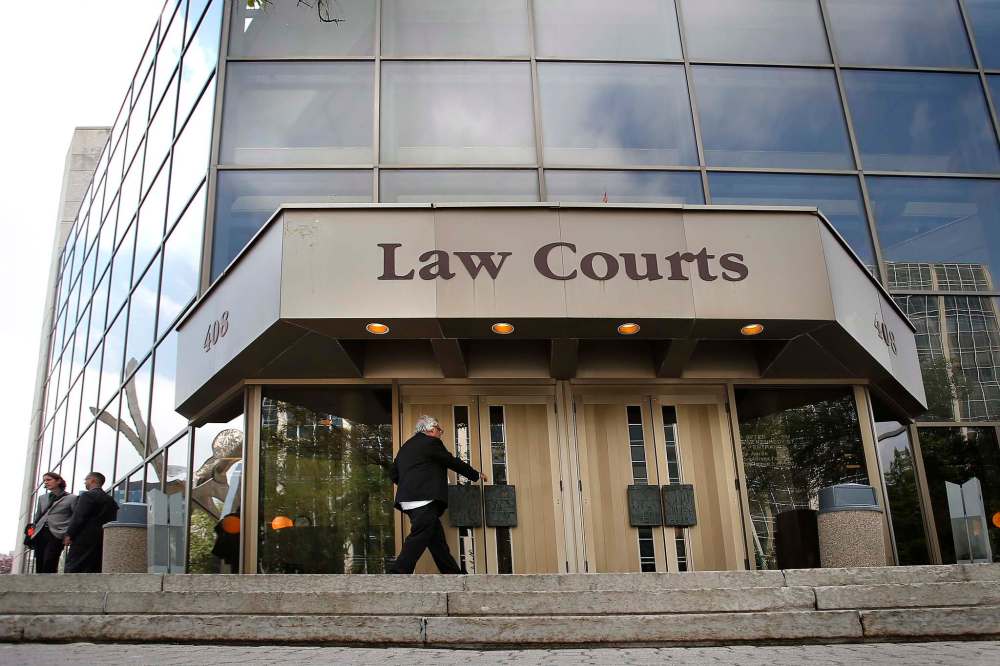Manitoba’s high court mulls public-sector wage freeze
Government lawyer argues bill doesn't violate charter rights
Advertisement
Read this article for free:
or
Already have an account? Log in here »
To continue reading, please subscribe:
Monthly Digital Subscription
$1 per week for 24 weeks*
- Enjoy unlimited reading on winnipegfreepress.com
- Read the E-Edition, our digital replica newspaper
- Access News Break, our award-winning app
- Play interactive puzzles
*Billed as $4.00 plus GST every four weeks. After 24 weeks, price increases to the regular rate of $19.00 plus GST every four weeks. Offer available to new and qualified returning subscribers only. Cancel any time.
Monthly Digital Subscription
$4.75/week*
- Enjoy unlimited reading on winnipegfreepress.com
- Read the E-Edition, our digital replica newspaper
- Access News Break, our award-winning app
- Play interactive puzzles
*Billed as $19 plus GST every four weeks. Cancel any time.
To continue reading, please subscribe:
Add Free Press access to your Brandon Sun subscription for only an additional
$1 for the first 4 weeks*
*Your next subscription payment will increase by $1.00 and you will be charged $16.99 plus GST for four weeks. After four weeks, your payment will increase to $23.99 plus GST every four weeks.
Read unlimited articles for free today:
or
Already have an account? Log in here »
Hey there, time traveller!
This article was published 02/06/2021 (1600 days ago), so information in it may no longer be current.
A Manitoba government lawyer argued Wednesday that a Court of Queen’s Bench judge erred last year when she found the province’s public-sector wage-freeze bill to be unconstitutional.
Heather Leonoff told a Manitoba Court of Appeal hearing, that trial Judge Joan McKelvey failed to properly take into account a precedent-setting Supreme Court of Canada collective bargaining case, involving the federal government and the RCMP.
“Broad-based, time-limited wage restraint legislation is constitutional and does not violate… the charter,” Leonoff told a three-member Appeal Court panel.

Last June, McKelvey called the Pallister government’s 2017 Public Services Sustainability Act (Bill 28) “draconian,” and ruled that it violated the charter right to association and collective bargaining.
Bill 28, which was passed but never proclaimed, affects approximately 120,000 public-sector workers. It calls for two years of wage freezes followed by pay hikes of no more than 0.75 per cent and one per cent in the third and fourth years of any new public-sector agreement.
The government did not violate the charter right to freedom of association with Bill 28, Leonoff argued, because there was still room for unions to “have a meaningful impact” on workplaces by bargaining other issues.
“The trial judge looked at the impact of taking away a (bargaining) topic. We say that Meredith (the RCMP precedent case) says you can take away a topic,” the government lawyer said.
While the bill was never proclaimed, public-sector managers have used it as a template in contract talks.
Shannon Carson, the lawyer for the Manitoba Federation of Labour, argued the Pallister government legislated the wage freeze because it wanted to avoid bargaining certain trade-offs in return.
“They were looking to avoid having to give anything to unions in exchange for wage restraints,” she told Chief Justice Richard Chartier and justices Janice leMaistre and Diana Cameron.
In 2010, public-sector workers and the former NDP government negotiated wage freezes, but the provincial employees received layoff protection and other benefits in return.
Carson said with wages off the table, public-sector unions had no leverage with which to bargain other issues.
In the precedent-setting case cited by the government, the Supreme Court weighed the past bargaining history in the federal public sector in concluding that the rates set by the federal Expenditure Restraint Act did not infringe upon the rights of RCMP members, Carson pointed out.
“So the pre-legislative history was directly relevant,” she said.
The Appeal Court reserved its decision after the daylong hearing.
“I’ve been at the Court of Appeal for 15 years, and I don’t think I’ve ever seen two factums setting out such contrasting positions,” Chartier said early in the hearing, referring to written arguments submitted in advance by the two sides.
larry.kusch@freepress.mb.ca
History
Updated on Thursday, June 3, 2021 10:35 AM CDT: Changes day of week to Wednesday in lede.
Updated on Thursday, June 3, 2021 10:36 AM CDT: Updates photo caption with correct day of week.

